Maryna considered her hometown of Izium a paradise until the “Russian world” arrived. In an instant, Maryna found herself unable to eat, unable to drink, sleep standing up, and lay her son down on her own feet.
“No one could have imagined that the Russians would do this to us, but it turned out that from February 24, they simply started exterminating us.”
A week before the start of the full-scale war, Maryna began having nightmares. While no extraordinary events were occurring, her determined intuition sensed something. As the days approached February 24, the cursed fear gripped her even stronger. Life was preparing for her, as for all Ukrainians, many horrors, but no one could predict exactly what would happen.
— On the morning of the 24th, my friend from Kharkiv called me and said, ‘Marina, the war has begun! Pack your things.’ My hands and feet trembled. I couldn’t calm down, but I started ‘automatically’ gathering my belongings. Fear had paralyzed me so much that I only put documents, jewelry, and pajamas with socks in my suitcase. Then the power went out, and my son got terrified, but surprisingly quickly composed himself and began to pack his things,— Maryna began her story.
After the electricity disappeared, people emptied store shelves, withdrew every last penny from ATMs, and drained all the fuel from gas stations.
— People were frightened, you could feel it in the air as if it were made of iron. We endured a long line. I was buying everything in a row, not thinking I couldn’t cook anything from it later because there would be no light, heat, or gas. We took everything necessary and decided to go to a private house of friends. For some reason, I thought it would be calmer there. I didn’t even have the slightest thought of leaving the city. I thought they would inconvenience us for a few days, and it would all end. No one could have imagined that the Russians would do this to us, but it turned out that from February 24, they simply started exterminating us,— Maryna said, shivering with memories.
She and her son stayed with friends for several days, but on the night of February 28, their house began to shake from loud explosions. And for three days, their shelter became a cold basement, where they sat in their pajamas. The only thing that kept them warm was the thought of being alive.
— Several families were killed that night because rockets and bombs hit private homes. One of them, a 500-kilogram bomb, caused our walls to tremble and fell into a house not far from us. It didn’t explode, but six people were killed by the impact – they burned alive. After that, we finally decided to go to my parent’s place in a five-story building,— our interlocutor continued.

Too many questions swirled in my head, and the key one was, “Why?”. But instead of answers, which were absent, enemy rockets were raining down on people one after another.
— During this time, I learned not to sleep, not to want to eat or drink, and to sit for hours in one position, holding my son’s hand. We sat in the basement – without light, without warmth… It was even scary to go outside and see what time of day it was,— Maryna recalls. — We slept sitting up. Planks were laid out for the children to sleep on, and they slept on them together. When they woke up, the adults could get a bit of sleep. We took turns sleeping – about an hour each.
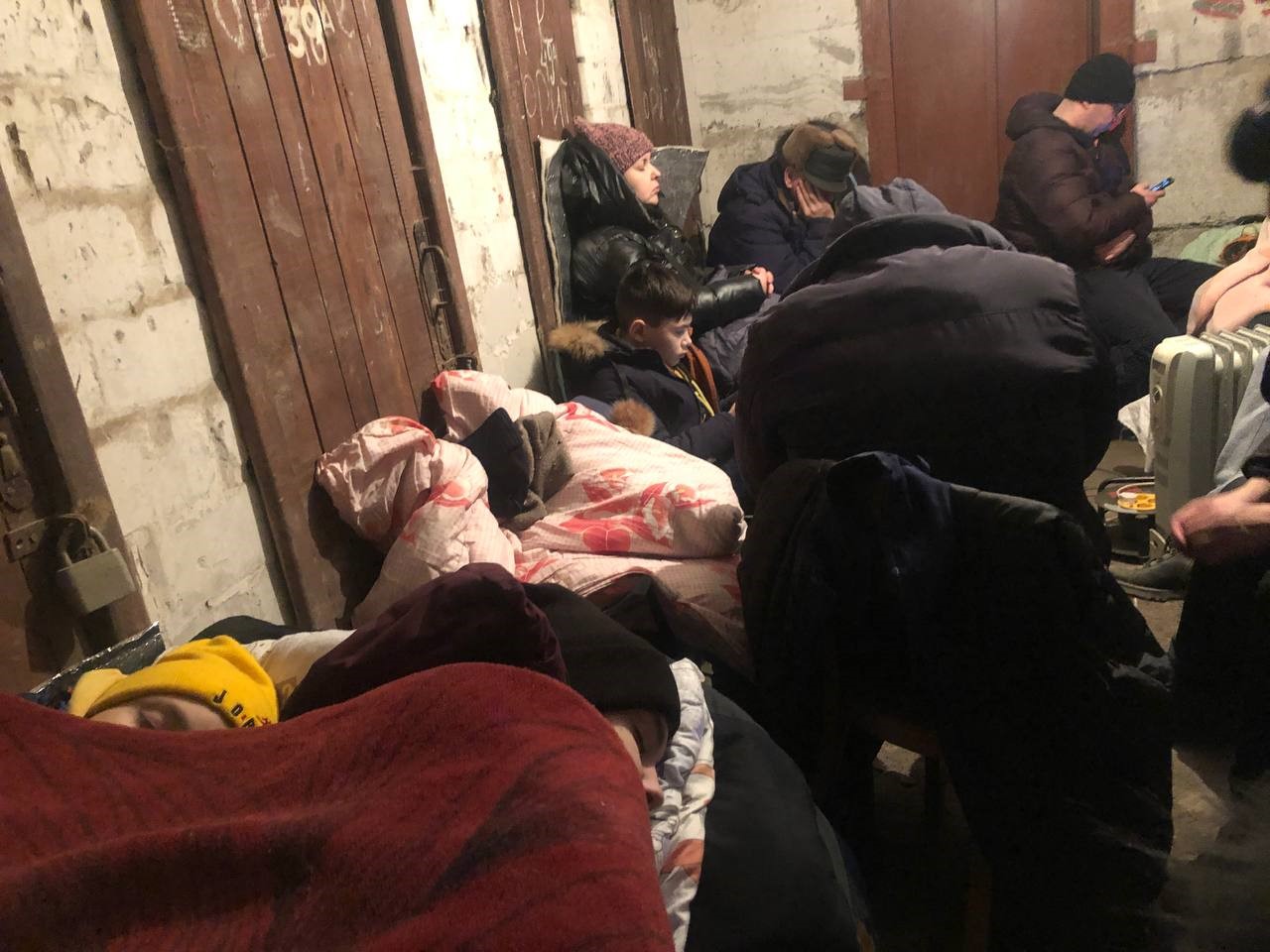
“I couldn’t speak because the pain was choking my throat and splitting my brain.”
But the scariest night of Maryna’s life was yet to come. On March 4th, during artillery shelling, one of the shells hit the apartment just above the basement, igniting a fire.
— We all fell to the ground. Some of the children started feeling nauseous from fear. We were practically lying in filth because the explosion ruptured the sewage pipes. I thought it was the end and we were just going to suffocate. I had an icon in my pocket, and I prayed for a quick and painless death. We were saved by a young man who put on his brother’s firefighter uniform, even though he wasn’t a firefighter, and started leading us to the exit. At that moment, someone who could unite us was needed because panic had gripped everyone. Amid the shelling, we were relocated to another shelter. We had to walk over broken glass and torn wires. I was even afraid to lift my head and look at my house, but later it turned out that it survived. We spent the next night standing because there was nowhere to sit. I sat my son on my lap: he curled up there and fell asleep until morning,— Maryna shared her painful memories.
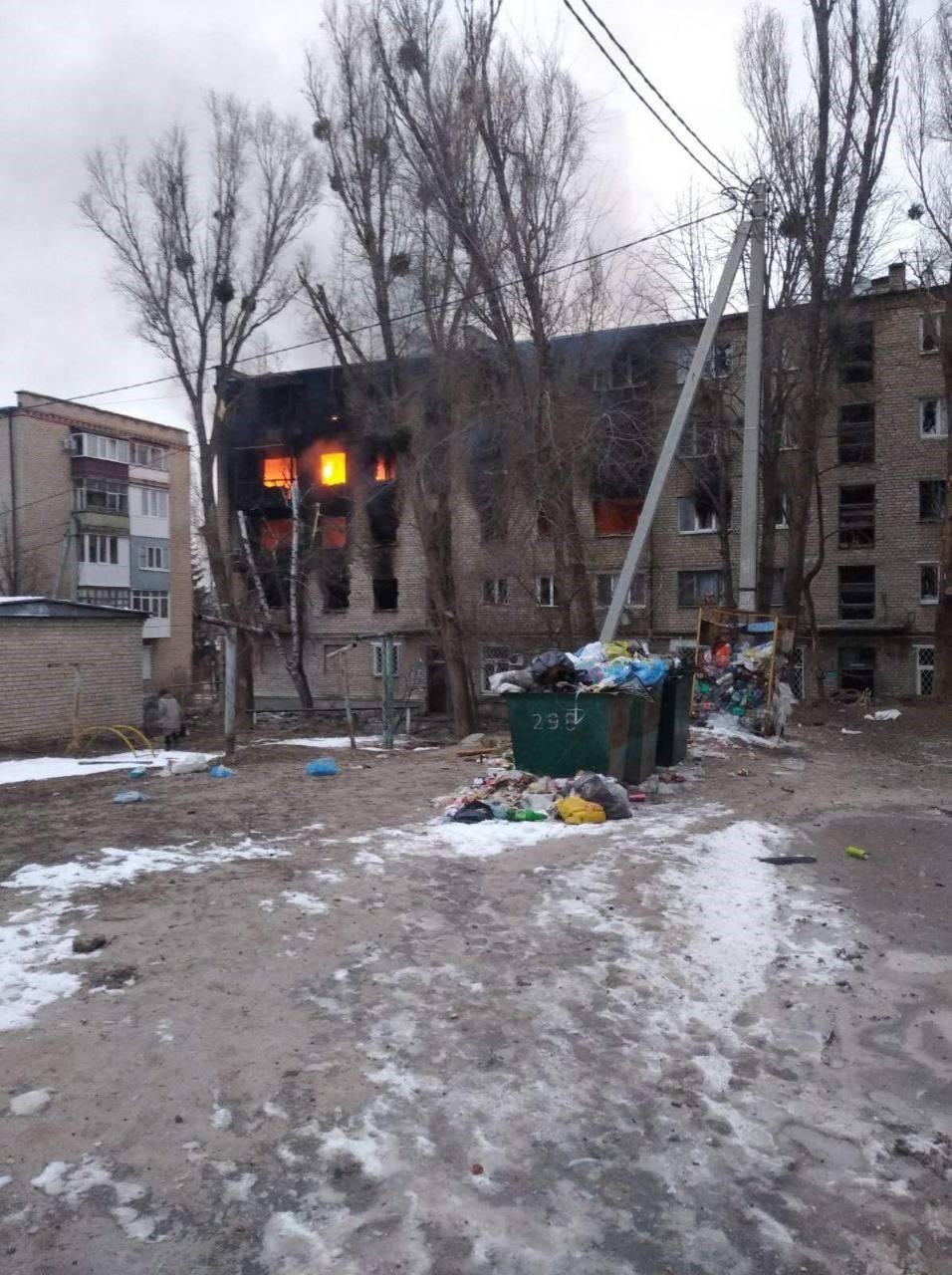
Maryna didn’t want to stay in Izium longer to test her strength. It was time to leave.
— It turned out that there wasn’t enough room in the car for my father. Only my mom, my son, and I were going. As we left, the neighbors stood sadly near the basement and watched us go. My father and I hugged. He tried to light a fire in the barbecue grill to at least warm up some tea,— Maryna says, holding back tears. — My son’s best friend also watched us leave… And so we left. I was afraid to open my eyes wide because there were dead buildings all around, and the branches and wires seemed to reach straight into our car and wouldn’t let go. I couldn’t speak because the pain was choking my throat and splitting my brain. And until we left the Kharkiv region, we drove in silence, just listening and trying not to get caught under the airstrikes.
The following five days, the family spent on the road, stopping overnight in refugee camps. Maryna’s friend invited her to Ivano-Frankivsk, and her heart was torn apart by the thoughts of her father, who remained in Izium.
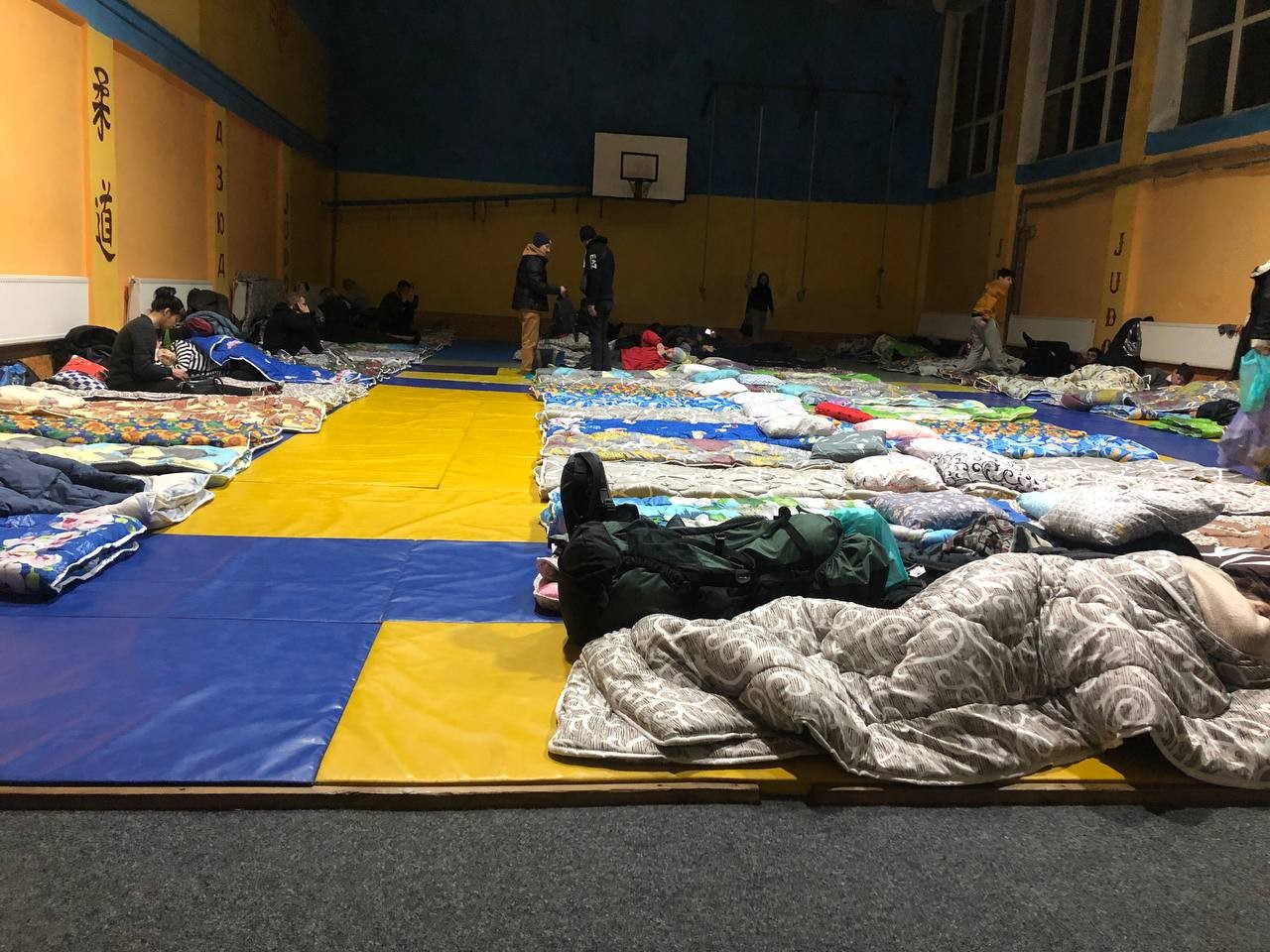
“At my new job, it felt like I had wings.”
— We arrived in Ivano-Frankivsk on March 10th. There was no housing available at that time. A friend helped us by finding a rented apartment. The rent was high, but somehow we managed and adapted to the new reality. I was very worried about my father: in Izium, all communication was cut off, and we didn’t know anything, — continues Maryna.
Poetry was the only thing that gave her strength at that time, a way to pour out pain and feelings. At the end of March, Marina wrote her first poem in Ukrainian. Previously, she had expressed her inner thoughts in Russian, but her hatred towards the invaders prompted her to switch to Ukrainian even in her thoughts.
Initial evacuation months were tough emotionally. Adapting to a new city from scratch was a big challenge. She worked in Izium’s City Council PR department pre-war, but due to downsizing caused by the war, finding a relevant job in Ivano-Frankivsk took a lot of work.
— You know, I didn’t care what job it was at that moment. I just flipped through all the job listings one after another. If they had offered me a cleaning job, I would have taken it. The main thing was to feed my family. But I got a job as a consultant in a women’s store and went to work there. I enrolled my son in school. Then I was told there’s a Center for Journalistic Solidarity in Ivano-Frankivsk. There, I received humanitarian aid and made valuable connections. In the summer, I was offered a position in the civil service. I hesitated for a long time but finally took the job in the fall. And it was a good decision because, at my new job, it felt like I had wings,— Maryna recounts.
Life seemed to be returning to normal, but the lack of communication with her father continued to haunt her. The summer passed, and Maryna still knew nothing about her fate.
The situation changed in September.
— On September 12th, Izium was liberated from the invaders! It was the happiest moment since the beginning of the full-scale invasion – such a firework of emotions! My father called from a military number the day after liberation. He was so happy! He started telling how our tanks entered with Ukrainian flags, how people played music, and how cars followed those tanks. Friends of my parents cooked food for the guys and baked a lot of pastries on the first day. People in Izium were incredibly happy. We were overjoyed when we regained contact and found out that my father was alive. Later, my dad could finally come to us— our interlocutor brightens up.
“We are all Ukrainians, and our national closeness is felt now like never before.”
Wounded and battered but unbroken, Izium is slowly returning to life. Maryna believes that her city will soon become a paradise again and will gladly return with her family.
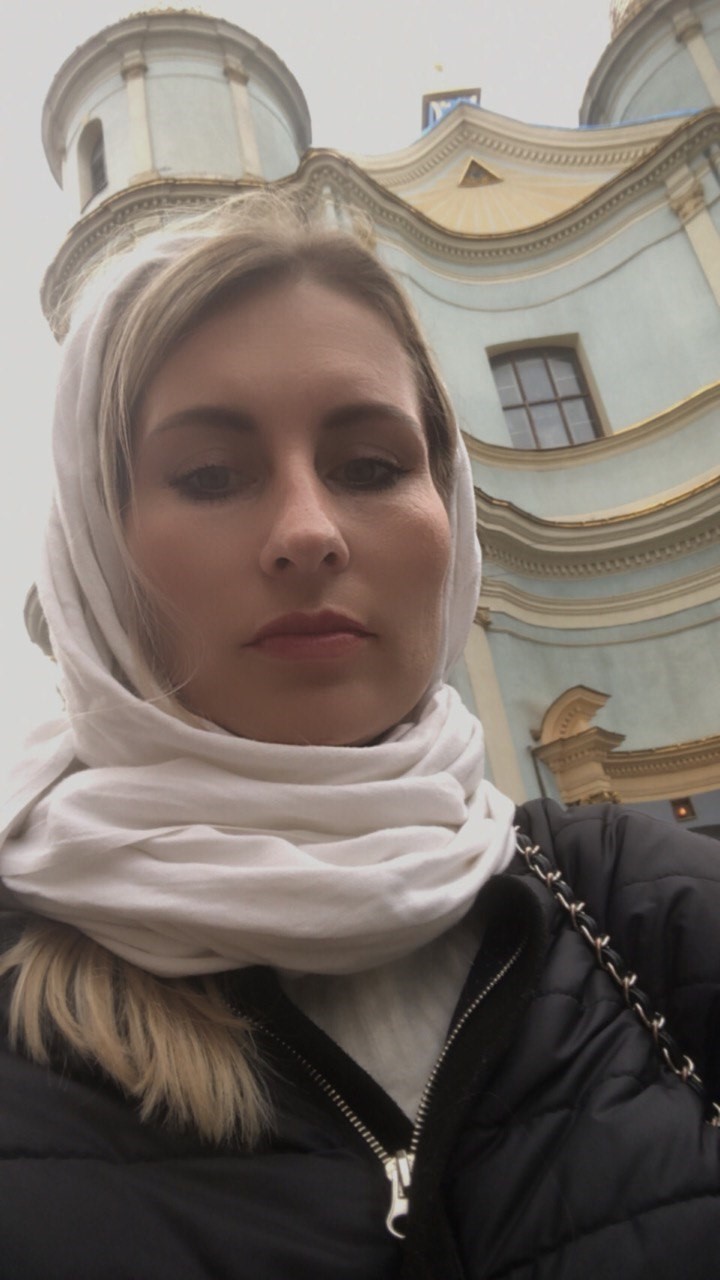
— I just want to go back to my hometown, even for a day. To see the city, meet friends, colleagues, and even neighbors we didn’t interact with much before, and just hug them. But as long as the war continues, Izium is dangerous due to its proximity to the frontlines. For now, we’ll stay in Ivano-Frankivsk. And beyond that… I don’t plan far ahead. In these ten months, I’ve experienced so much: falls, rises, disappointments, surges. So, I don’t make long-term plans. But I’m immensely grateful to everyone around us in this new place, those who helped us stand on our feet. I’ve felt our unity. It doesn’t matter where people lived, live or where they came from. We’re all Ukrainians, and our national closeness is felt more than ever before. – Former Head Specialist of the PR and Media Department of Izium City Council, Maryna Trubnikova.
This series, titled Executed Free Speech, is created as part of a project Drawing Ukrainian And International Audience’s Attention To Serious Violations Of Human Rights And Crimes Against Journalists And Mass Media By The Russian Federation, which is performed by the National Union of Journalists of Ukraine, with support from the Swedish non-profit organization Civil Rights Defenders.
JOURNALISTS ARE IMPORTANT. Stories of Life and Work in Conditions of War is a cycle of materials prepared by the team of the NUJU with the support of the Swedish human rights organization Civil Rights Defenders.
#CRD

 THE NATIONAL UNION OF
JOURNALISTS OF UKRAINE
THE NATIONAL UNION OF
JOURNALISTS OF UKRAINE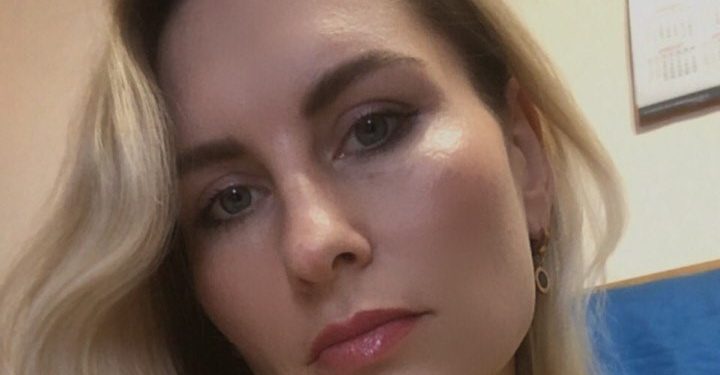
















Discussion about this post